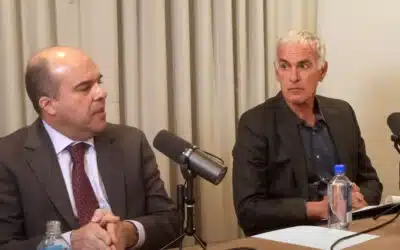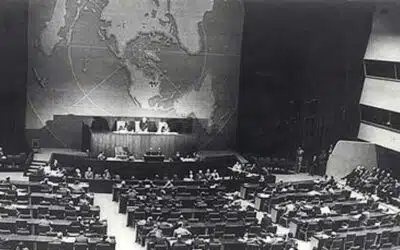Under the headline “In Iran Race, All 8 Candidates Toe Hard Line on Nuclear Might”, the New York Times comments, with regard to the presidential contest, that
when it comes to Iran’s nuclear program they are all saying the same thing: there will be no backing down, no bargaining away the nation’s perceived right to enrich uranium for power generation.
“Perceived” right? The Times wants its readers to believe that this is a right Iranian officials are claiming to have that doesn’t really exist. Well, let’s just see what the Nuclear Non-Proliferation Treaty (NPT) to which Iran and the U.S. are both party has to say about that:
Nothing in this Treaty shall be interpreted as affecting the inalienable right of all the Parties to the Treaty to develop research, production and use of nuclear energy for peaceful purposes….
That includes the enrichment process, of course.
So why does the Times insist on describing this as Iran’s “perceived” right to enrich? Well, that’s simple. The Times understands and accepts the framework that rights derive from Washington, D.C. It notes that in 2004,
Iran temporarily suspended enrichment of uranium as a confidence-building measure, but the Western powers stood by their demand that the entire program be terminated, accusing Iran of seeking nuclear weapons.
So, according to U.S. policy, Iran is not only forbidden from enriching uranium to weapons-grade in order to manufacture a nuclear weapon (proscribed activities under the NPT), but is also prohibited by Washington from enriching uranium at lower levels for peaceful civilian purposes (the U.S. intelligence community, incidentally, contrary to Bush and now Obama administration policy, has assessed that Iran has no nuclear weapons program).
The Times adds the following stunning commentary further down the page:
“Only on the day that the Americans lose hope in all sorts of plots, military war and economic war, will we be able to hold talks based on logic,” another candidate, Gholam Ali Haddad Adel, said on state television.
“Logic” is a code word, analysts say, which translates as accepting the Iranian position that it has a “right” to enrichment without restrictions.
“Logic” is a “code word”? This is embarrassingly idiotic drivel for the Times to be so mindlessly parroting (not that the Times mindlessly parroting idiocy should surprise anyone). The Times would like to mislead its readers into drawing the conclusion that Iran’s position is that it has a “right” to enrich uranium even to manufacture nuclear weapons (“without restriction”). But that isn’t Iran’s position at all.
Actually, “logic” in this context just means that talks should be based on reason, such as with the understanding that Iran has an “inalienable right” under the NPT to enrich uranium for peaceful purposes. In truth, what the Times is actually describing here as a “hard line” is the insistence of Iranian presidential candidates that Iran will not surrender its rights under the NPT. And when the Times claims that the insistence that talks be “based on logic” means that Iran’s position is that it may enrich “without restrictions”, this is really just code for saying that Iran, while understanding and respecting its obligations under the NPT, rejects the notion that its rights derive from Washington.


